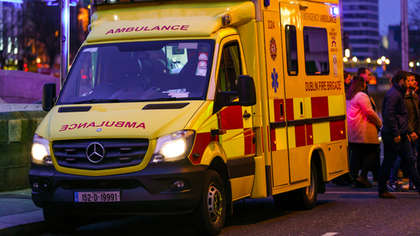
When someone calls 999 for an ambulance, the call goes to a call centre in either Tallaght or Donegal. If both centres are busy, the job is passed to the next available ambulance, which could be a considerable distance from the caller in need.
Dublin paramedics and SIPTU have called for the system to be changed as they fear callers are in danger of not receiving the care they require.
"The level of cases coming into the call centres has increased ten fold in recent weeks, it's a surge of cases," said SIPTU's Ted Kenny. "The problem is it's putting a lot of pressure on the National Ambulance Service and the paramedics as well."
Kenny outlined three issues facing the ambulance service.
"First is engagement and deployment of ambulances and that non-priority calls shouldn't be dispatched as the ambulances are often travelling two to three hours to a destination then stood down when an ambulance is closer," he said. "Then second, late finishes for the paramedics with their shifts over running which can exceed five or six hours. Then lastly, we're trying to sort breaks for the paramedics - a unit recently spent 15 hours inside an ambulance and I think they only got to one destination after all the travelling."
Due to the pandemic, ambulances are being forced to travel from the South East to respond to calls in Dublin.
"There are units going from hundreds of kilometres away to get to Dublin," one paramedic said.